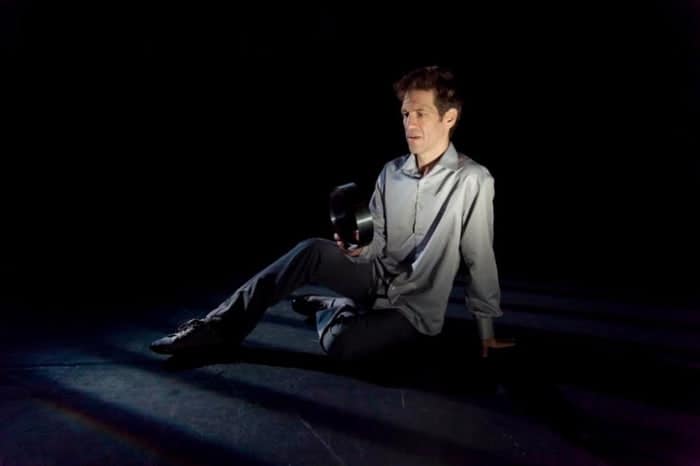Themed anthologies of Shakespeare are an old and respected theatre genre: Ellen Terry toured with her personal version of Shakespearean heroines and her great-nephew, John Gielgud, remade his career internationally in the 1950s with his show The Ages of Man, structured around the seven periods of a man’s life famously identified by Jacques in As you like it. The Israeli actor, Dori Engel, performs his own new variation on this theme in a fine 45 minute solo performance devoted to Shakespeare’s outcasts, exiles and losers. With the aid of only a few props, and a little cool jazz for interludes, Engel takes us through the minds and feelings of many of Shakespeare’s most restless characters. It is an intriguing and absorbing journey.
Most of the characters portrayed are male, though there are some notable female monologues too, including a finely comic Helena abasing herself as a spaniel in front of Demetrius, and a rare outing for Eleanor, Duchess of Gloucester too. There are also a couple of notable musical interventions, where, to settings by Ronnie Reshef, Engel launches into two of Feste’s famous melancholy lyrics from Twelfth Night, which always come over as bitingly dark when stripped of their dramatic context.
Along the way we hear the laments and complaints of Timon of Athens, Thersites and Jacques and many others. It is good to hear that superb speech on ‘tickling commodity’ from the mouth of the Bastard in King John, and a contrasting comic rarity in the form of Launce’s speech about his wayward canine, Crab, from Two Gentlemen of Verona. Both Richards, II and III, receive more than one hearing, and deservedly so, given that so much of their trajectory involves coming terms with gaining and losing royal identity and status, and finding a language fit for defeat and defiance.
Perhaps the best-acted parts of this impressively sustained show are those where the actor has to paint a picture in words or, more rarely, enact a key point in the drama through a single monologue. Engel brings a fine dynamic range to Clarence’s dream that anticipates his drowning; and as both Edgar and Edmund from King Lear he neatly juxtaposes both sides of the hunter and the hunted, and the fragility and easy toppling of conventional notions of respectability. A particular high point comes in his deeply felt and beautifully pointed rendition of Shylock’s ‘Hath not a Jew eyes?’, where the anger and resentment is held back to masterful effect.
Towards the end of the performance the actor breaks character and delivers a lucid encomium on Shakespeare’s inclusiveness of characterisation and argues that its source resides in his own breadth of experience of the world at its best and worst, which gave him a special insight into the mind of the enforced outsider, as someone both deserving of pity and yet more than capable of revenge. In some ways this section came over more as an introduction than as a conclusion and indeed a more coherent and self-conscious sense of structure would have helped the evening’s overall coherence. While there was no doubting the technical and verbal and physical variety that the actor brought to his task, sometimes the links between the segments were not always clear or were restricted to a superficial verbal hook.
The themes and speeches evoked here are important and the performance impressive, but for this work to move up a gear and succeed at – say – Edinburgh, then director Nick Hutchison and Engel need to think more precisely about the categories of exile and alienation they wish to focus on. It is not quite enough to say with Richard II, ‘Thus play I in one person many people, And none contented.’ There is more fine-grained story there just waiting to be programmed and told.

